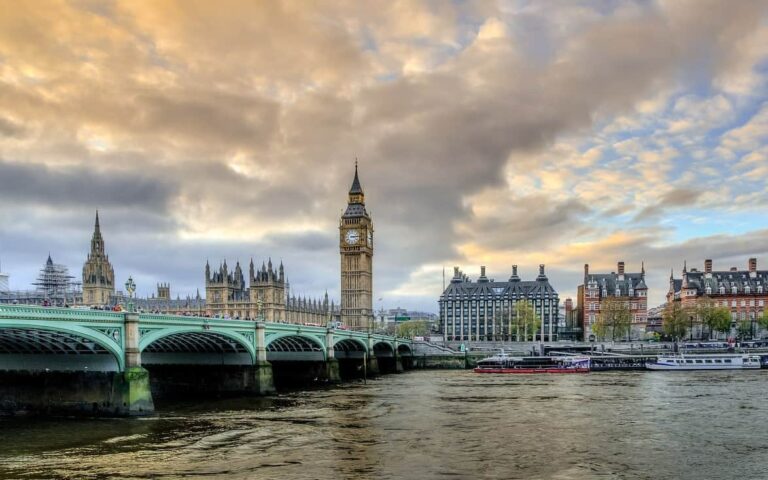London will close out 2023 in recession, and the picture is getting worse. In addition to the international economy, government choices are weighing and the consequences of Brexit are beginning to be seen.
The United Kingdom is in recession. And while many countries, held back by inflation, will face a slowdown this year, London is expected to be the only advanced economy that will end 2023 with declining GDP.
The problems, then, go beyond the issues common to much of the West. As always, however, having certainties is difficult, but there is little doubt that the recession is the result of a combination of factors-including Brexit.
Table of Contents
The IMF’s disregarded estimates
According to the International Monetary Fund, British GDP is expected to fall by 0.6 percent. More than the magnitude of the recession, the direction the country is headed is of concern. In fact, last October, the IMF had assumed 0.3 percent growth.
This is exactly the opposite of what has happened to most advanced economies, which have seen estimates improve in the same months. Italy, for example, went from an assumption of recession (-0.2%) to one of growth, albeit weak (+0.6%). But the exception is the United Kingdom: the Gross Domestic Product of advanced economies will increase by 1.2 percent.
UK in recession: economic policy choices
In 2022, the International Monetary Fund had strongly criticized the economic maneuver launched by then-Premier Liz Truss, characterized by a tax cut for high incomes and capable of triggering a heavy drop in the pound.
Truss had first removed the head of the Economy, then resigned, handing over the post to Rishi Sunak. The new PM has delivered what many have called a “U-turn,” with a budget bill made up of cuts in government spending and an increase in the tax burden.
The limp economic policy thus added up to other factors. Namely, inflation, high energy prices, a weak pound, and struggling businesses and households. Added to these are the first possible negative consequences of Brexit.
What does Brexit have to do with the U.K. recession?
According to a Bloomberg analysis, Brexit would cost £100 billion a year. Leaving the EU would then have a 4 percent impact on the British economy.
Leaving the Union, economists Ana Andrade and Dan Hanson pointed out, “was an act of economic self-defeat,” with a negative impact even faster than expected.
During the transition period, many investments were put on hold pending a clearer picture. They restarted, but London still took the hit.
According to Jonathan Haskel, a member of the Bank of England’s Monetary Policy Committee, the investment slowdown has cost £29 billion, or about £1,000 per household, since the 2016 referendum.
The Bank of England itself, comparing investment projections before and after Brexit, said that, by 2026, there will be a difference (in the negative) of 3.2 percent of GDP.
That Brexit was not a good idea is also beginning to be thought by the people who, through the referendum, had sanctioned the farewell. This is confirmed by two Savanta Poll surveys published by The Independent newspaper.
Two-thirds of Britons regret leaving the EU, while only 13 percent believe things have improved. Not only that, two out of three UK citizens would like to vote again. 22% would like to do so now, another 24% in the next five years, and 11% in six to ten years. Only one in four respondents would oppose it.
NHS workers on the streets
Difficult, not to say impossible, to think about a referendum. What is evident, however, is a growth in discontent. Which could be welded with recession, complicated government maneuvering, and declining purchasing power.
A situation that is far from rosy and has already hinted at possible consequences. In February, unions called the largest strike in the history of the National Health System (NHS).
Nurses, ambulance drivers and paramedical staff took to the streets to demand a decisive wage increase. Which, however, is not feasible for the government.
Read also: Brexit, decisive trade agreement between London and Brussels on Northern Ireland’s status












